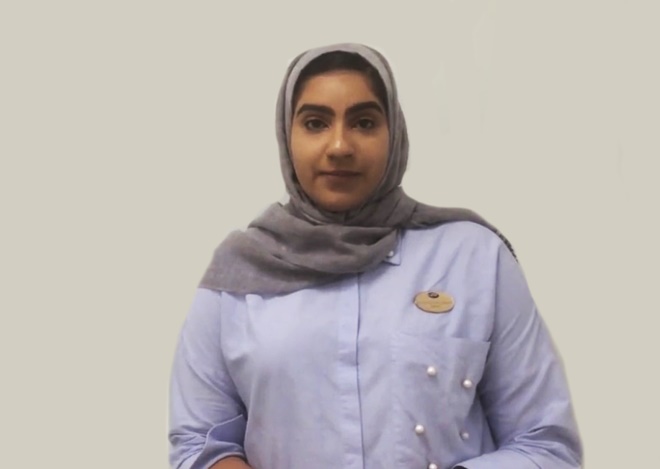
Shutterstock.om / JL
The time between finishing your pre-registration assessment and receiving your results can be a daunting experience. Although it is not worth worrying about how well you performed in the exam, it is normal to dwell on the odd question that possibly still haunts you.
I used the anxiety and nerves that were building up towards results day to my advantage and converted that energy into something productive. Being a fully registered, and possibly the only pharmacist on day one, requires preparation. I completed my pre-registration year with Boots — they provided excellent training materials with activities throughout the year to support and enable me to be a confident pharmacist from the start.
I knew that I already had the knowledge to be a competent pharmacist, but unfortunately simply having the clinical knowledge is not enough to ensure the safe and effective running of a pharmacy. Throughout the year, I was required to meet and demonstrate compliance with the pre-registration trainee performance standards set by the GPhC. I also completed monthly development plans and used feedback on my performance to work on developing leadership skills and guide me in the right direction. It was also an opportunity to celebrate success in the areas of pharmacy that I was performing well in. I talked about patient care and gave examples of when I provided best patient centred care. I worked with my tutor to regularly assess my performance, identify areas I still needed to work on and how to improve.
I independently completed self-reflection exercises, prepared for my reviews and took ownership of my learning. When it came to the final month, I focussed on areas I thought needed work. My tutor and I role played patient scenarios and tested my knowledge. I also directly observed patient-pharmacist consultations.
There were a few things I knew I wanted to work on before I became a registered pharmacist. These included:
- Medicines use review (MUR) accreditation – some training providers will fund your MUR accreditation. This is an advanced service within the NHS Community Pharmacy Contractual Framework.
- Safeguarding training – level 2 safeguarding is a minimum requirement to provide services such as emergency hormonal contraception. It also equips you with the knowledge to spot signs where there are potential safeguarding issues and how to raise those concerns. Training is provided by the Centre for Pharmacy and Postgraduate Education (CPPE).
- Substance dependency – some pharmacies will provide methadone or buprenorphine under an NHS contractual agreement called the Substance Dependency Service. If you are planning on becoming a locum or relief pharmacist, it is vital to know how the prescription varies, how the service works and how to conduct MURs to specifically meet this group of patients’ needs. Training can be provided in your pharmacy or in a suitable store nearby as well as CPPE.
- Summary care record training – this allows you to understand how summary care records work, under what circumstances you can use them and how it benefits patients. The relevant learning materials and assessment is available on CPPE.
- New Medicines Service – this is another advanced service offered by community pharmacies under the NHS Contractual Agreement. Understanding which medication qualifies for the service, how and when to check in with patients and even doing mock consultations with your tutor can help reinforce your learning and help to build your confidence.
- Additional training such as gateway training for the flu vaccination service, malaria prevention service and even smoking cessation workshops will allow you to provide these services from day one of practice.
- Standard operating procedures (SOPs) — You can start looking at the relevant SOPs for responsible pharmacists in preparation for signing them once you register.
I considered these to be the core tasks I needed to complete before I started practice, but with the pre-registration exam behind me, I couldn’t help but consider other areas of pharmacy where I wanted to build my knowledge. I decided to look further into vitamins and herbal products, as well as the evidence base behind them. I also refreshed my consultation skills using The Medication Related Consultation Framework (MRCF) published by the RPS. The framework is detailed and allows you to explore your skills when speaking to patients about their concerns. This includes areas such as how well you collected data and identified the problem, were you able to provide solutions to the patient’s problem, the behaviours you exhibited during the consultation and how well you opened and closed the consultation.
It is important to continually stop and re-evaluate your learning needs. Becoming a pharmacist is something to be proud of and with recent media attention directed towards the profession, it is important that we maintain the integrity of the profession through ongoing training and development.
Congratulations on completing an intense year. Don’t forget to celebrate.
About the author:

Zahra Mahomed is a newly registered pharmacist who studied at De Montfort University in Leicester, achieving a first-class honours degree. She completed her pre-registration training with Boots in Piccadilly Circus in July 2018. She is currently practicing in a city flagship Boots store in Leicester.
You may also be interested in
The importance of diverse clinical imagery within health education

Government should consider ways to prevent ‘inappropriate overseas prescribing’ of hormone drugs, review recommends
